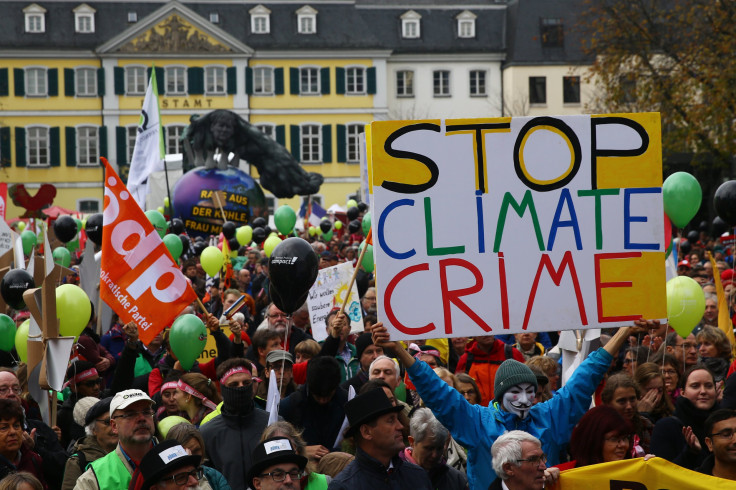Global Climate To Be 4 Degrees Warmer By 2084, Chinese Scientists Warn

In a dire climate prediction, a group of researchers from China published a paper in which they said Earth’s temperature is set to rise by 4 degrees Celsius by the year 2084, compared to pre-industrial levels. That would be a complete mockery of the goals of the Paris Climate Accord (also called the Paris Agreement), which aims to limit that temperature rise to under 2 degrees Celsius, and preferably keep it under 1.5 degrees Celsius.
To reach this alarming conclusion, Dabang Jiang and his team from the Institute of Atmospheric Physics (IAP) of the Chinese Academy of Sciences looked at a scenario where emissions of greenhouse gases continued at their current rates. They used 39 different climate models and compared results from each, to arrive at as accurate a simulation as possible.
Most simulations showed global climate would be warmer by 4 degrees Celsius between 2064 and 2095, with 2084 being the median year.
“A great many record-breaking heat events, heavy floods, and extreme droughts would occur if global warming crosses the 4 °C level, with respect to the preindustrial period. The temperature increase would cause severe threats to ecosystems, human systems, and associated societies and economies,” Jiang, a senior researcher at IAP, said in a statement.
Looking at climate changes on a smaller scale, the planet’s landmasses will see more annual and seasonal warming than the oceans, and the largest increase in temperatures would happen in the Arctic regions, where the amount of precipitation would go up as well.
The variation in temperatures in one year would reduce in the tropics, and increase in the polar areas. Precipitation would increase in the Pacific as well. All this would happen even if the goals of the Paris Agreement were to be met, but in that scenario, they would be less severe.
“Such comparisons between the three levels of global warming imply that global and regional climate will undergo greater changes if higher levels of global warming are crossed in the 21st century,” Jiang said, adding: “Our ultimate goal is to provide a comprehensive picture of the mean and extreme climate changes associated with higher levels of global warming based on state-of-the art climate models, which is of high interest to the decision-makers and the public.”
The study, titled “Climate Change of 4°C GlobalWarming above Pre-industrial Levels,” featured as the cover story of the July 2018 issue of the journal Advances in Atmospheric Sciences, and was published online May 18 as an open-access paper. Funding for the research came from the National Basic Research Program of China and the National Natural Science Foundation of China.
In November 2012, the World Bank had published a report called “Turn Down the Heat: Why a 4°C Warmer World must be Avoided.” According to the report, a world in that scenario “would be one of unprecedented heat waves, severe drought, and major floods in many regions, with serious impacts on ecosystems and associated services. … No nation will be immune to the impacts of climate change. However, the distribution of impacts is likely to be inherently unequal and tilted against many of the world's poorest regions, which have the least economic, institutional, scientific, and technical capacity to cope and adapt.”
© Copyright IBTimes 2024. All rights reserved.




















